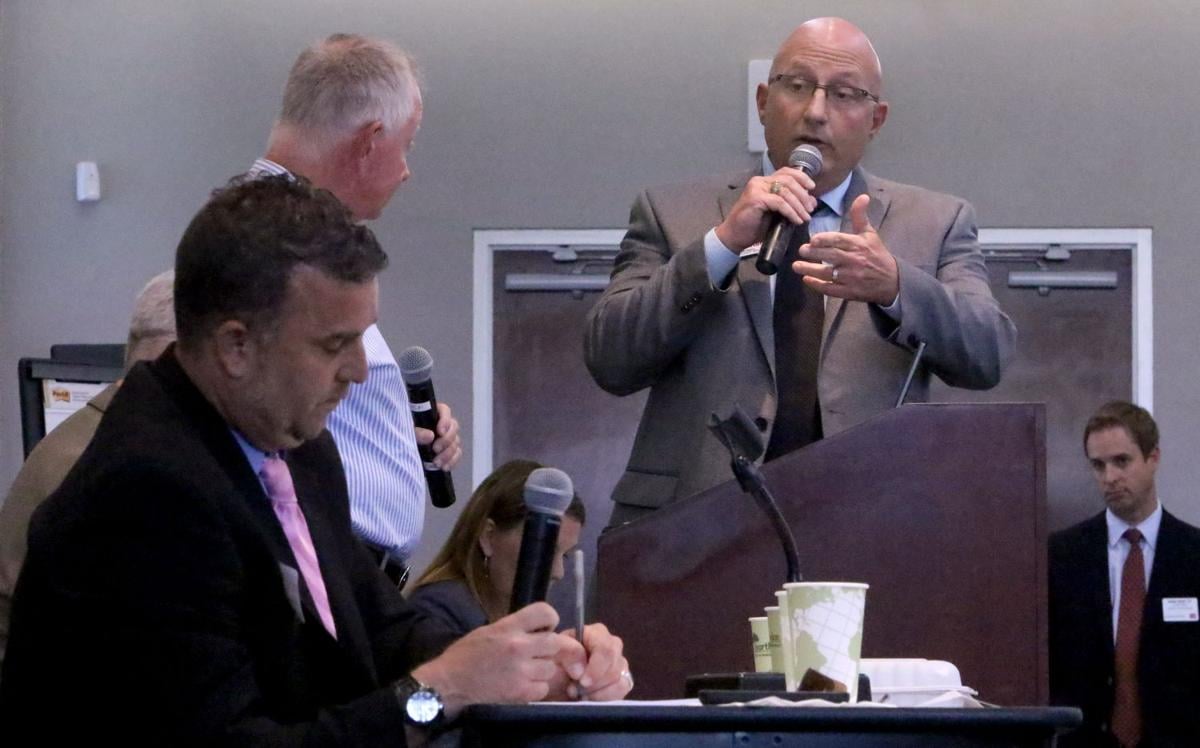Pick two instead of seven.
Under a proposal to change the city election system, you’d get a say in who represents your one ward at the city council and in who’s mayor.
That’s a change from the current system, in which you get a say in all six city council races plus the mayoral race.
The Tucson City Council will hold hearings at 5:30 p.m. Tuesday, May 3 on a draft ballot question to change the city election system.
You’ll see some variation of these proposed changes on the November ballot.
- Voters would choose among candidates for city council in their ward for the primary election and for the general election. The current system has voters choosing candidates in the ward in the primary and then in all six wards in the general. The mayor would continue to be elected by a citywide vote.
- Eliminate staggered terms. Currently the mayor and wards 1, 2 and 5 are elected in one cycle and then wards 3, 4 and 6 are elected in another cycle two years later. The change would mean one election every four years.
- To make the terms even, there would need to be a one-time change in term limits. This could be accomplished by electing 2017 council members to a 2-year term or extending the terms of those elected in 2015 to six years.
A new system should be in place in January, when candidates will start campaigning for the 2017 city council election, said Tucson Mayor Jonathan Rothschild.
WHY A NEW SYSTEM
The city has to make a change because a three-judge panel of the Ninth Circuit Court of Appeals found Tucson’s current system to be unconstitutional.
The split decision in November 2015 said the election system violates the 14th Amendment and the Equal Protection Clause, known as the “one man, one vote” protection, by excluding some voters from the primary election based on which ward they live in.
The city is asking the court to reconsider, but there’s no way to know when, or even if, the court will agree to a hearing with an 11-judge panel.
Putting the ward-only election question on the ballot was one reason Republican National Committeeman Bruce Ash brought the legal action against the city in the first place.
If ward-only elections were in place today, the council likely would look different.
In 2015, Republican candidates in wards 2 and 4 won the majority of votes in their respective ward but lost citywide. With the proposed system in place, they would have won. Instead, Democrats won.
Council Member Karin Uhlich said she thinks it’s time for voters to weigh in on whether they want the changes.
“It troubles me that there are people in the community, regardless of their stripes, who feel they are not getting proportionate representation,” she said at the council meeting Tuesday.
Council Member Regina Romero put it more bluntly. She said the city should let voters decide instead of “being sued by an individual who seems to be throwing a tantrum.”
But the ward-only election system hasn’t been popular with Tucson voters.
City voters rejected ward-only elections in 1975, 1991 and 1993, while more recent initiative campaigns in 1998, 2001 and 2003 failed to even make it onto the ballot.
A February poll commissioned by the mayor and paid for by the Southern Arizona Leadership Council found 26 percent of voters want the ward-only election system.
Among those who regularly vote in city elections, the number rises to 31 percent.
BETWEEN THE LINES
Rules for the city election system are spelled out in the city charter, which is like the city’s constitution.
To change the charter, the ballot question would have to receive more than 50 percent of the votes cast.
Putting the ward-only election question on the ballot is really like asking voters about three different scenarios, Rothschild said.
If the ballot proposition passes, the new ward-only city election system would take effect next year.
If it fails, and if the appeals court reverses its decision, the current system would remain in place.
If it fails, and if the court decision stands, the city election system would change to make all city council and mayor races citywide. It would likely happen under the guidance of a district court judge, and there would be no charter change, said City Attorney Mike Rankin.
Under that scenario, there would still be wards for candidates to meet federal election rules. Otherwise the city could see six midtown residents elected, for example.
Rothschild acknowledges this isn’t simple, but it will be important for voters to understand the consequences of a yes vote or a no vote, he said.
The February poll found wide confusion about how to change the city election system, with 23 percent of voters saying they were unsure how they’d vote given a variety of options.
The mayor said he’d like to see the nuances explained on the ballot itself, or if it can’t be written there it would at least be detailed in the voter information pamphlet.
Robert Medler, vice president of the Tucson Metro Chamber, said he’s pleased to see the discussion focusing on ward-only elections, which is easier to explain to voters than some other options.
With the appeals court decision pending, he said, “it’s better for Tucsonans to choose their election system than for the court to mandate it.”





